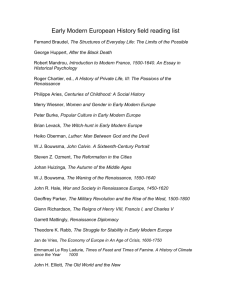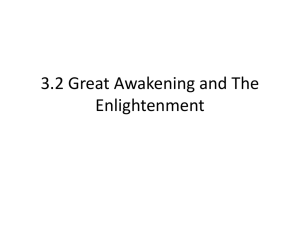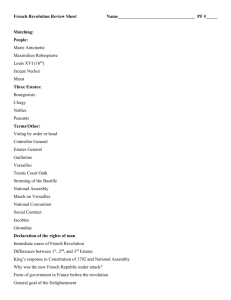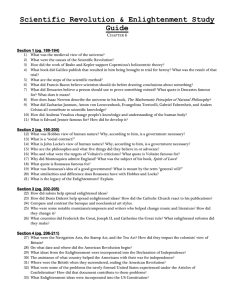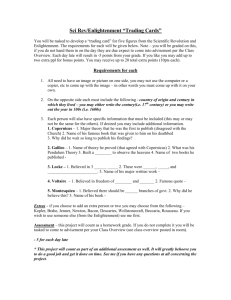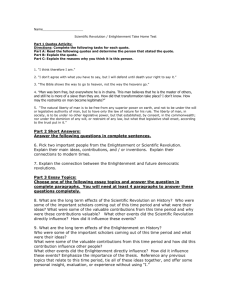STUDY GUIDE: Scientific Revolution & Age of Enlightenment
advertisement
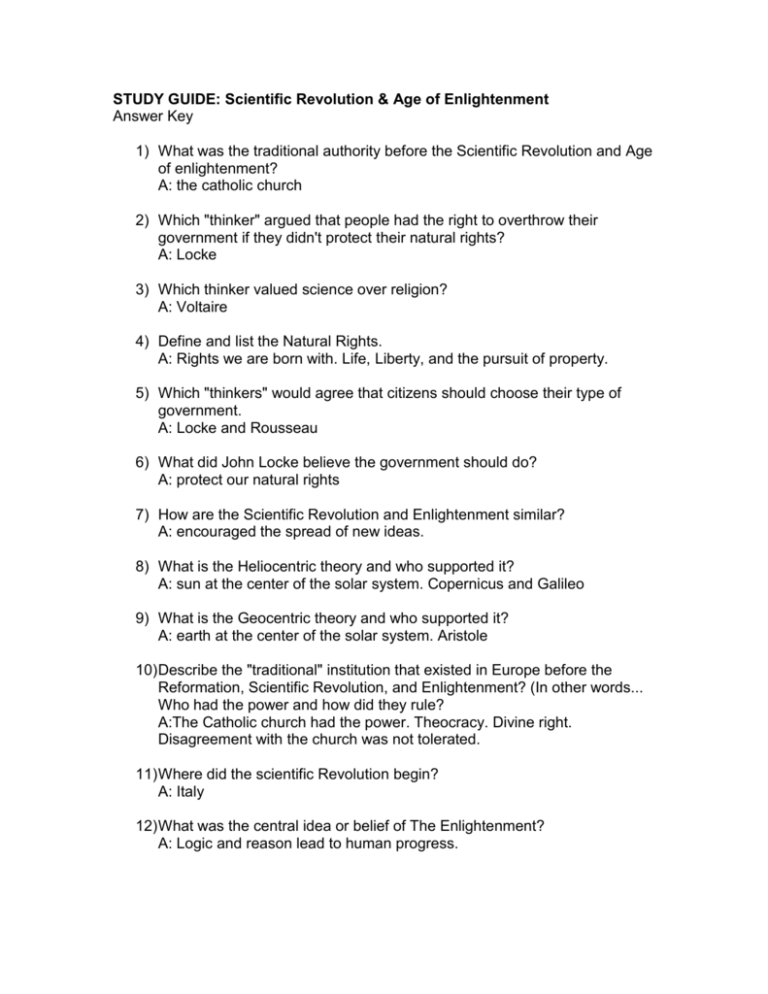
STUDY GUIDE: Scientific Revolution & Age of Enlightenment Answer Key 1) What was the traditional authority before the Scientific Revolution and Age of enlightenment? A: the catholic church 2) Which "thinker" argued that people had the right to overthrow their government if they didn't protect their natural rights? A: Locke 3) Which thinker valued science over religion? A: Voltaire 4) Define and list the Natural Rights. A: Rights we are born with. Life, Liberty, and the pursuit of property. 5) Which "thinkers" would agree that citizens should choose their type of government. A: Locke and Rousseau 6) What did John Locke believe the government should do? A: protect our natural rights 7) How are the Scientific Revolution and Enlightenment similar? A: encouraged the spread of new ideas. 8) What is the Heliocentric theory and who supported it? A: sun at the center of the solar system. Copernicus and Galileo 9) What is the Geocentric theory and who supported it? A: earth at the center of the solar system. Aristole 10) Describe the "traditional" institution that existed in Europe before the Reformation, Scientific Revolution, and Enlightenment? (In other words... Who had the power and how did they rule? A:The Catholic church had the power. Theocracy. Divine right. Disagreement with the church was not tolerated. 11) Where did the scientific Revolution begin? A: Italy 12) What was the central idea or belief of The Enlightenment? A: Logic and reason lead to human progress. 13) What ideas did Rousseau, Voltaire, and Montesquieu have that influenced political reform (change in government)? A: any and all from thought bubble PowerPoint. 14) The Enlightenment philosophers believed that the power of government came from the people that are governed. True or false? A: true 15) Logic and reason were highly valued during the enlightenment. True or false? A: true 16) List the following in the order they occurred/began: Enlightenment Renaissance Scientific Revolution Reformation A: renaissance, Reformation, Scientific Revolution, Enlightenment 17) In what ways are the Renaissance and the enlightenment similar? A: cultural change 18) Nicolaus Copernicus, Galileo Galilei, Sir Isaac Newton, and Rene Descartes all had an effect on the -— being used to solve problems. A: scientific method * There will also be review questions on the test. Be sure to review your notebook for key topics and vocabulary from previous units. Word bank (going this to my lowest students) The catholic church Voltaire Locke Hobbes Copernicus Aristotle Galileo Scientific method
